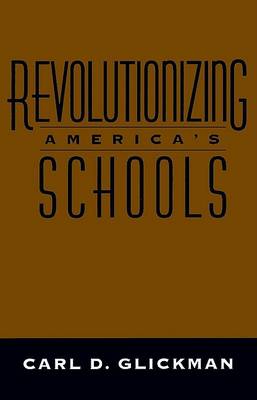The Jossey-Bass education
1 total work
Revolutionizing America's Schools is provocative, personal, and right on the mark. It should be read by anyone who believes our schools can better educate our young and who is committed to making the effort to improve them. - Paul Schwarz, Principal of the Jackie Robinson Complex, and Co-director of Central Park East Secondary School, East Harlem, New York CityWith this insightful, practical collection of personal essays, Glickman tackles education's most urgent questions. Who should govern schools? Whose values should schools represent? How should teachers teach? How does democratic change occur? Glickman directly addresses issues of race, culture, gender, and religion and reveals how understanding these issues can contribute to purposeful change, and he connects democratic rhetoric to action - covering such practicalities as student grouping, curriculum selection, and school leadership. Introduction: A Vision of Democracy Part One: On Democracy1. Democracy - What Is It? 2. Democracy and Education3. Ambiguity and Informed MindsPart Two: On Pedagogy4. Powerful Learning5. School Structures for Teaching6. Teacher Education and Public Schools7.
Governing for the Future Part Three: On Getting Beyond 8. Wealth and Welfare 9. Isms and Reasons 10. Religion, Secular Humanism, and Geese11. Who Owns the Child? 12. Constitutional Hope for Education Part Four: On Differences13. Race and Education14. Suffrage, Gender, and Listening15. From Our Ancestors Part Five: On Change16. Finding Room for School Change 17. Listening to Students1 8. Leadership for Democracy Conclusion: Democracy as Education
Governing for the Future Part Three: On Getting Beyond 8. Wealth and Welfare 9. Isms and Reasons 10. Religion, Secular Humanism, and Geese11. Who Owns the Child? 12. Constitutional Hope for Education Part Four: On Differences13. Race and Education14. Suffrage, Gender, and Listening15. From Our Ancestors Part Five: On Change16. Finding Room for School Change 17. Listening to Students1 8. Leadership for Democracy Conclusion: Democracy as Education
